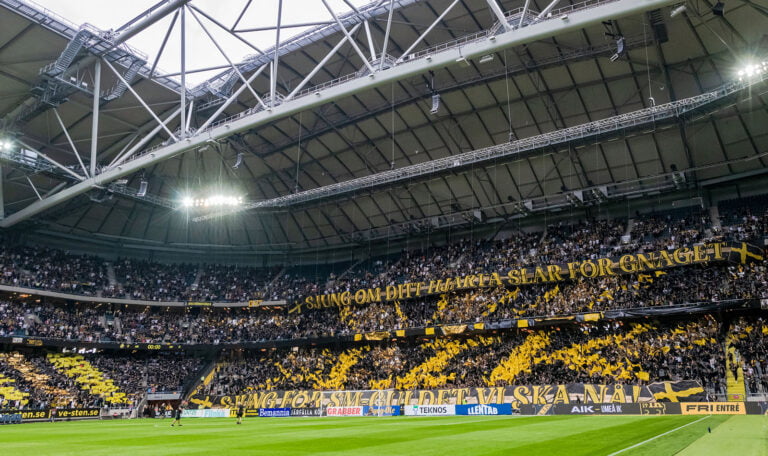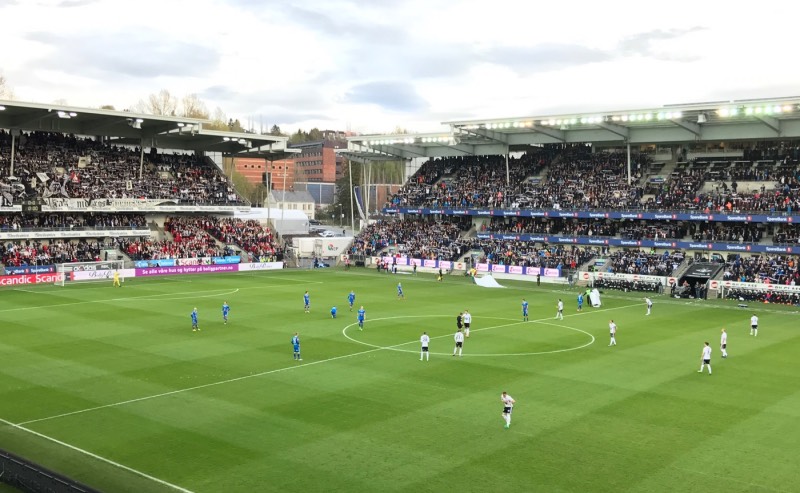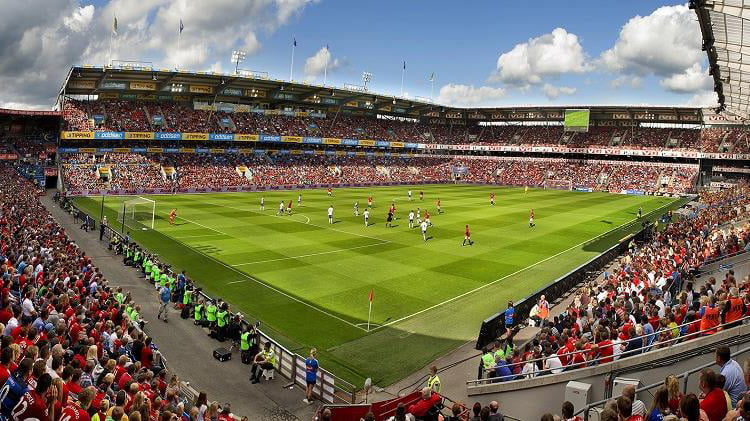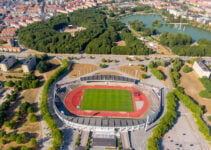Norway has teamed up with three other Nordic countries in a bid to host the women’s European football championships in 2025. But they will be up against tough competition.
Global interest in women’s football has never been higher. Earlier this year, more than 90,000 people filled Barcelona’s Camp Nou to set a new attendance record. Then the European Championship tournament in England grabbed global attention like never before.

Now the Nordic region wants to invite the world to a football festival. After confirming the intent to bid back in April, the football federations of Finland, Sweden, Denmark and Norway have now submitted a joint bid to host Euro 2025.
Women’s football in the Nordic region
Women’s football has been popular in Norway and Scandinavia for decades. Norway won the World Cup in 1995 and have reached at least the semi-finals of the European Championships in 9 of the 12 tournaments, winning twice.
In 2018, Norway’s Ada Hegerberg became the first winner of the female Ballon D’or. Denmark’s Pernille Harder placed second.

Sweden have also won the European tournament and Denmark reached the most recent final in 2017. Sweden were also beaten finalists in the World Cup and reached the semi-final stage on three other occasions.
The Nordic bid for 2025
Four Nordic countries Finland, Sweden, Denmark and Norway—with the support of Iceland and the Faroe Islands—have now formally submitted a bid to host the 2025 European Championships.
In the event of a successful bid, Oslo’s Ullevaal Stadium and Trondheim’s Lerkendal Stadium would host games in Norway.
Other planned host cities include Stockholm, Solna and Gothenburg in Sweden, Helsinki and Tampere in Finland, and Copenhagen and Odense in Denmark. The final would be held at Sweden’s 50,000-capacity Friends Arena.

Lise Klaveness is president of the Norwegian Football Association. She said that women’s football in the Nordic countries has so much to offer: “We offer to share with the rest of Europe our joint ambition to leave a long-lasting legacy of truly equal opportunities in football.”
Karl-Erik Nilsson, president of the Swedish Football Association, said of the joint bid that “together we are stronger.”
“Together we will provide a unique experience for both players and supporters. All Nordic football associations agrees about the importance of organizing major championships in our countries, and together we have great ambitions for the development of women’s football. The UEFA Women’s Euro in the Nordic countries will strengthen the women’s football with a focus on sustainability, safety, and equal societies,” he added.
Strong competition for 2025
The region is no stranger to hosting major tournaments. Sweden hosted the World Cup in 1995 and European Championships in 1997 and 2013. The 1997 tournament was co-hosted with Norway, which also hosted the tournament by itself in 1987.

Denmark hosted the European Championships in 1991. One year later, Denmark also hosted the men’s version of the tournament.
Despite this strong heritage and experience, the Nordic countries face tough competition in the bid process. France and Poland have confirmed their bids, along with a joint bid from Switzerland and Liechtenstein.
The decision will be made in December following the final bid deadline in the autumn.




